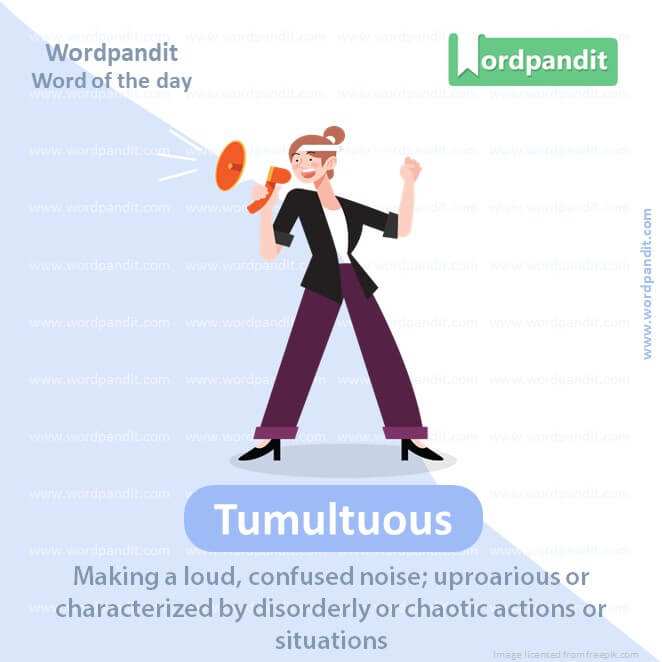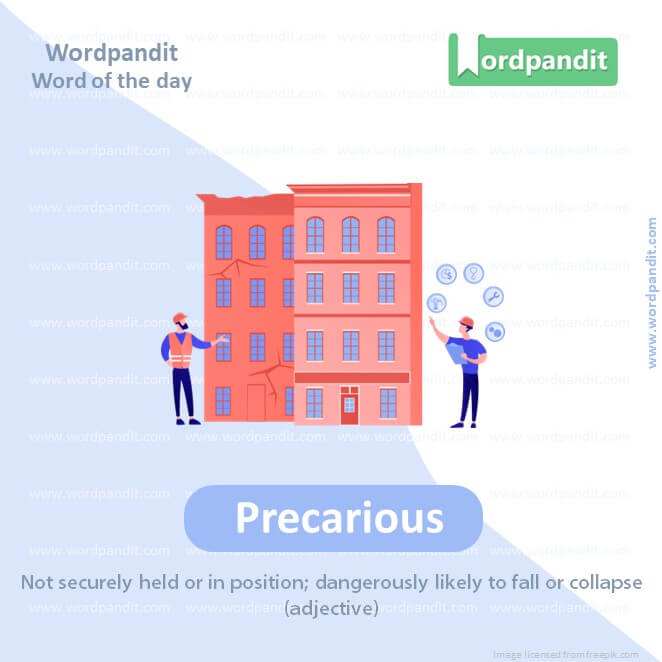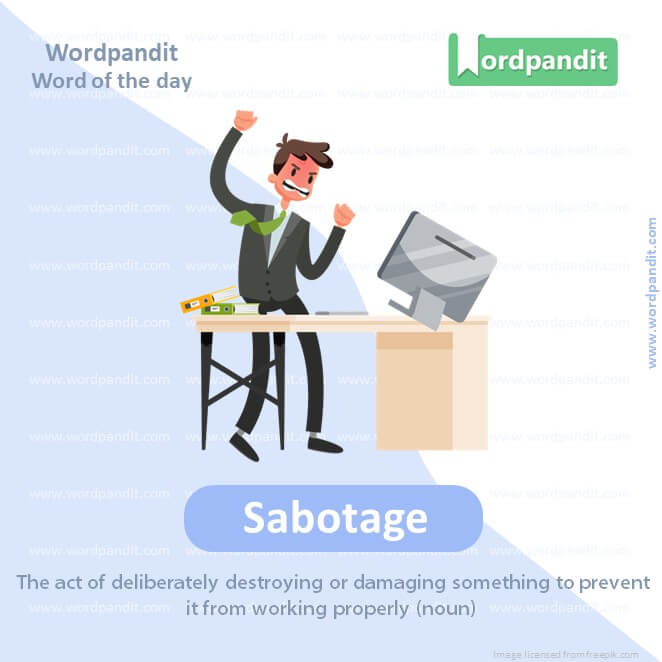Daily Vocabulary Words: List of Daily Used Words
Hi there. Welcome to this special section @ Wordpandit.
Our endeavour here is straightforward: highlighting important daily vocabulary words, you would encounter in The Hindu. This is your repository of commonly used words; essentially, we are posting a list of daily used words. Hence, this has significant practical application as it teaches you words that are commonly used in a leading publication such as The Hindu.
Visit the website daily to learn words from The Hindu.
WORD-1: Recruiting
CONTEXT: Instead of recruiting more such inspectors, this cadre is being declared dead after they retire. In a State where there are more than 50 municipal bodies, there are only 20 sanitation inspectors, which means that there are some municipalities that have no sanitation inspectors.
SOURCE: The Hindu
EXPLANATORY PARAGRAPH: Imagine your soccer team needs more players for the big game. You ask around at school to find kids who want to join your team. This process of looking for and getting new players is called “recruiting.” It means finding new people to join a group or organization.
MEANING: The act of enlisting new people for work or a team (noun).
PRONUNCIATION: re-KROOT-ing
SYNONYMS: enlisting, hiring, engaging, drafting, enrolling
USAGE EXAMPLES:
1. The company is actively recruiting new graduates.
2. She’s involved in recruiting volunteers for the festival.
3. Military recruiting efforts have increased this year.
4. Recruiting the right candidate took longer than expected.
WORD-2: Mapping
CONTEXT: The EPI may be quite comprehensive. However, one of its features of mapping exposes the unsustainability of our development processes.
SOURCE: The Hindu
EXPLANATORY PARAGRAPH: Imagine you draw a picture of your neighborhood showing all the houses, streets, and parks. This drawing helps others see where everything is located. This process is called “mapping.” It means creating a map or a representation of an area.
MEANING: The act or process of creating a map of an area (verb).
PRONUNCIATION: MAP-ing
SYNONYMS: charting, diagramming, plotting, laying out, schematizing
USAGE EXAMPLES:
1. They are mapping the forest to study its biodiversity.
2. The new app helps in mapping routes for drivers.
3. Mapping the human genome was a significant scientific achievement.
4. Urban planners spend a lot of time mapping city growth.

WORD-3: Tumultuous
CONTEXT: While much water has flowed down the Nile during the tumultuous regional history, the Jew-Persia enmity has survived 26 centuries; barring last century’s Pahlavi era in Iran when the two non-Arab, pro-American states had a tactical alliance.
SOURCE: The Hindu
EXPLANATORY PARAGRAPH: Imagine a playground where kids are running everywhere, screaming and laughing loudly, and it’s all a bit chaotic. This wild and noisy situation is called “tumultuous.” It means full of noise, excitement, and confusion.
MEANING: Making a loud, confused noise; uproarious or
characterized by disorderly or chaotic actions or situations.
PRONUNCIATION: too-MUL-choo-us
SYNONYMS: turbulent, stormy, chaotic, disorderly, noisy
USAGE EXAMPLES:
1. The meeting ended in a tumultuous manner, with many people shouting.
2. Her arrival was met with tumultuous applause.
3. The years following the revolution were tumultuous.
4. The sea was tumultuous during the storm.

WORD-4: Pernicious
CONTEXT: Iran has backed non-state proxies such as Hezbollah, the Houthis and Hamas which have become a pernicious threat to Israel’s security while providing Tehran the fig leaf of deniability.
SOURCE: The Hindu
EXPLANATORY PARAGRAPH: Imagine a plant in your garden that looks pretty but slowly harms all the other plants around it. This harmful effect is called “pernicious.” It means having a harmful effect, but in a way that is not easily noticed.
MEANING: Harmful in a subtle or gradual way (adjective).
PRONUNCIATION: per-NISH-us
SYNONYMS: harmful, damaging, destructive, deadly, insidious
USAGE EXAMPLES:
1. The pernicious weed spread throughout the farmland.
2. He warned of the pernicious influences of the media on the young.
3. Smoking has pernicious effects on health.
4. There are pernicious aspects to certain traditional practices.

WORD-5: Precarious
CONTEXT: A precarious strategic dynamic had come into place – until an unacknowledged airstrike on April 1, suspected by Israel, on the Iranian embassy compound in Damascus, killing seven Iranians, including two generals.
SOURCE: The Hindu
EXPLANATORY PARAGRAPH: Imagine balancing on one foot on a wobbly rock. You might feel like you could fall any second. This risky and unstable situation is called “precarious.” It means not securely held or in position; dangerously likely to fall or collapse.
MEANING: Not securely held or in position; dangerously likely to fall or collapse (adjective).
PRONUNCIATION: preh-KAIR-ee-us
SYNONYMS: unstable, risky, unsafe, uncertain, shaky
USAGE EXAMPLES:
1. The economy is in a precarious state right now.
2. He was climbing a precarious ladder that looked like it might break.
3. Their financial situation is particularly precarious.
4. The peace talks are in a precarious position.

WORD-6: Sabotage
CONTEXT: It has also been engaged in undeclared air and missile operations against Iranian and Hezbollah presence in Syria and has tried to sabotage Iran’s nuclear programme.
SOURCE: The Hindu
EXPLANATORY PARAGRAPH: Imagine you and your friends built a tower with blocks, and someone sneaks up and knocks it down on purpose so that you can’t finish. This action is called “sabotage.” It means deliberately damaging or destroying something to prevent it from working properly.
MEANING: The act of deliberately destroying or damaging something to prevent
it from working properly (noun).
PRONUNCIATION: SAB-uh-tahj
SYNONYMS: vandalism, destruction, disruption, subversion, interference
USAGE EXAMPLES:
1. The machinery was broken due to sabotage by a disgruntled employee.
2. During the war, both sides engaged in sabotage against each other.
3. The team suspected sabotage when their equipment failed suddenly.
4. Authorities are investigating the collapse as a possible act of sabotage.

WORD-7: Confining
CONTEXT: Unlike Europe where Jews were often persecuted, small Jewish communities (“Mizrahi”) lived amicably among Arabs from Morocco to Iran, albeit with ghetto-based existence often confining them to trades such as money-lending and jewellery-making.
SOURCE: The Hindu
EXPLANATORY PARAGRAPH: Imagine being in a small room where you can’t move around much because there isn’t enough space. This feeling of being stuck in a small space is called “confining.” It means restricting movement within a limited area.
MEANING: Restricting movement, space, or freedom (adjective).
PRONUNCIATION: kuhn-FY-ning
SYNONYMS: restricting, limiting, enclosing, imprisoning, bounding
USAGE EXAMPLES:
1. The illness was confining him to his bed for several days.
2. She felt confined by the rules of the organization.
3. The new law is confining the activities of financial institutions.
4. Confining animals in small spaces is considered inhumane.
WORD-8: Chanting
CONTEXT: the Arab anti-Israeli demonstrators can often be seen chanting in Arabic “Khaybar Khaybar yā Yahūd, jaish Muammad sauf ya‘ūd” (”Khaybar, Khaybar O Jews, Muhammad’s army shall return”).
SOURCE: The Hindu
EXPLANATORY PARAGRAPH: Imagine being at a sports game where everyone is shouting the same words over and over to cheer on their team. This repetitive shouting is called “chanting.” It means saying or singing something repeatedly in a rhythmic way.
MEANING: Saying or singing something repeatedly in a rhythmic tone (verb).
PRONUNCIATION: CHANT-ing
SYNONYMS: singing, shouting, reciting, intoning, vocalizing
USAGE EXAMPLES:
1. The fans were chanting the team’s name in unison.
2. Protesters were chanting slogans outside the city hall.
3. The monks spent the morning chanting prayers.
4. Chanting her name, the crowd welcomed the hero home.
WORD-9: Flaunting
CONTEXT: While flaunting their strategic autonomy, they know their vulnerabilities and are clutching at various straws in the wind.
SOURCE: The Hindu
EXPLANATORY PARAGRAPH: Imagine wearing a super shiny, sparkly dress to a party because you want everyone to notice you. This act of showing off your dress is called “flaunting.” It means displaying something ostentatiously to attract attention or show off.
MEANING: Displaying something ostentatiously to provoke envy or admiration or to show defiance (verb).
PRONUNCIATION: FLAWN-ting
SYNONYMS: showing off, parading, exhibiting, displaying, brandishing
USAGE EXAMPLES:
1. She was flaunting her new designer handbag at the event.
2. Despite warnings, he continued flaunting his wealth.
3. They were flaunting their success in a way that felt boastful.
4. Flaunting his new car, he drove slowly past his ex’s house.
WORD-10: Remitting
CONTEXT: Apart from an expected oil price surge, it would create insecurity for over nine million Indian expatriates in West Asia remitting around $40 billion annually.
SOURCE: The Hindu
EXPLANATORY PARAGRAPH: Imagine you have to send some money to a friend who lives in another city. When you transfer the money through a bank or online, this act of sending the money is called “remitting.” It means sending money as a payment or gift.
MEANING: Sending money as a payment or gift (verb).
PRONUNCIATION: reh-MIT-ting
SYNONYMS: sending, transferring, dispatching, paying, forwarding
USAGE EXAMPLES:
1. The company is remitting funds to an overseas supplier.
2. He is responsible for remitting monthly payments on the loan.
3. Remitting tuition fees on time is crucial for enrollment.
4. They discussed the best methods for remitting assistance to the affected areas.
Vocabulary Daily Words
Among the myriad aspects of language learning, the role of ‘vocabulary daily words’ attests to their undeniable importance. These everyday words form the bedrock of communication. Whether used in casual chat or formal discussion, the fluency and understanding of ‘vocabulary daily words’ can significantly uplift the quality of interaction. However, the vital question is, how to effectively learn these ‘vocabulary daily words’?
The crux of learning ‘vocabulary daily words’ lies in a well-rounded approach that encompasses exposure, understanding, memorization, and practice. Rote memorization might seem like a quick solution, but it lacks context and, thereby, retention. Hence, opt for a diverse range of resources like books, newspapers, podcasts, and digital media. These will bring ‘vocabulary daily words’ to life, providing real-life usage examples and making the learning process inherently engaging.
Next, using memory-enhancing techniques can significantly improve retention of ‘vocabulary daily words’. Techniques such as flashcards or the Leitner System align with the principles of spaced repetition, allowing more effective and long-term learning. Incorporating mnemonic devices, associating new words with unique stories or images, can further facilitate this learning process.
The key to fully grasping ‘vocabulary daily words’ lies in practical usage. Make it a habit to use these words in your daily communications. Whether it’s a friendly conversation, a professional email, or a social media post, try integrating these new words. Doing so provides hands-on practice, strengthening your comprehension and application of these words.
In a nutshell, ‘vocabulary daily words’ are a treasure in the language learning landscape. By harnessing diversified resources, utilizing memory techniques, and actively using these words, your grip on the ‘vocabulary daily words’ will strengthen significantly. So, turn the pages, hit play, start a conversation, and let these ‘vocabulary daily words’ shape the story of your linguistic journey.










